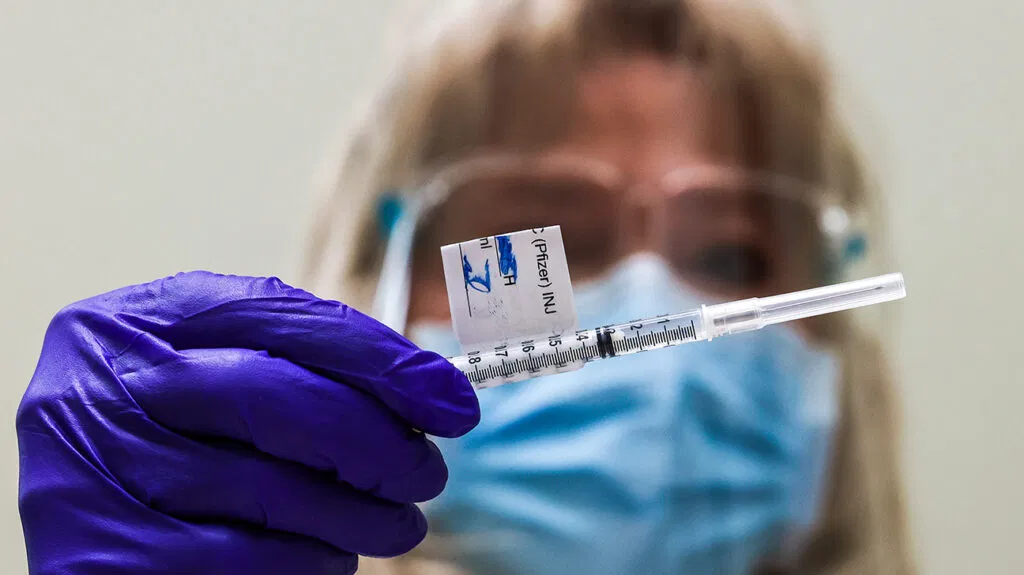Pfizer’s plan for 3 billion Covid jab doses December

The first batch of Pfizer Covid-19 vaccine donations arrived in Kenya last week, expanding options in the country’s inoculation programme that has been dominated by AstraZeneca.
The donations by the US government could pave the way for the US drug firm to access private market, which it has been angling for.
Pfizer Kenya Country Manager and East Africa Cluster Lead Anne Dembah spoke to the Business Daily.
THE US GOVERNMENT’S DONATION OF PFIZER VACCINES LANDED IN KENYA LAST WEEK. HOW WAS THE VACCINE DEVELOPMENT JOURNEY CONSIDERING THAT YOU HAD TO MOVE VERY FAST?
We knew early on that a safe and effective vaccine would be essential to ending the pandemic. So, we combined our industry-leading vaccine development, manufacturing and distribution capabilities with BioNTech’s expertise in innovative mRNA technologies to quickly develop, manufacture and distribute large quantities of high-quality Covid-19 vaccine.
Given the urgency of the pandemic, Pfizer self-funded more than $2 billion at risk to run clinical development and manufacturing processes in parallel and at scale.
Collaborating closely with regulatory and health authorities around the world, we compressed timelines that typically take years into months, and those that take months into weeks.
Patients and science were at the forefront of our efforts. We did not take shortcuts but rather worked innovatively to conduct key steps of the process in parallel rather than the usual sequential approach.
As a result, we were able to move at the speed of science and make the seemingly impossible possible: delivering in less than a year a breakthrough Covid-19 vaccine that received authorisation and recommendation in Europe and with authorities globally.
Thanks to the ingenuity and hard work of Pfizer’s scientists, engineers and skilled workers and multibillion dollars of investment Pfizer expects to manufacture up to three billion doses of BNT162b2 worldwide by the end of 2021, and we will continue to make investments and process improvements to enable more capacity in 2022.
HOW DOES THE PFIZER VACCINE WORK?
The Pfizer-BioNTech Covid-19 vaccine uses Messenger RNA vaccines technology — referred to as mRNA vaccines — and are some of the first vaccine types authorised for use in countries such as the United States.
These vaccines take advantage of the process that cells use to produce proteins, and in turn, trigger an immune response to build immunity against SARS-CoV-2 — the virus that causes Covid-19.
The BNT162 mRNA vaccine works by conveying genetic instructions to cells to make spike protein antigens specific for the virus.
The antigens will then be recognised by the immune system of the vaccinated individual, generating an antibody response to inactivate (neutralise) the SARS-CoV-2 virus.
HOW LONG DOES IT TAKE BEFORE SOMEONE IS PROTECTED AGAINST COVID?
Although partial protection from the vaccine appears to begin as early as 12 days after the first dose, two doses of the vaccine are required to provide the maximum protection — a vaccine efficacy of 95 percent — observed in the Phase 3 trial.
IS THE SECOND PFIZER VACCINE DOSE NECESSARY?
Yes. Although partial protection from the vaccine appears to begin as early as 12 days after the first dose, two doses of the vaccine are required to provide the maximum protection.
The vaccine requires two doses to be administered several weeks apart and research on the efficacy of a single dose remains limited.
People who receive their first dose are implored to receive their second according to the vaccination schedule to ensure they develop sufficient immunity.
HOW MANY SERIOUS SIDE EFFECTS WERE RECORDED IN COUNTRIES THAT STARTED VACCINATION FIRST?
Safety data from the Phase 3 study has been collected from more than 12,000 vaccinated participants who have a follow-up time of at least six months after the second dose, demonstrating a favourable safety and tolerability profile.
We will continue to monitor participants for two years following their second dose.
Outside of the trial, we closely monitor all events and collect relevant information to share with global regulatory authorities.
Based on ongoing safety reviews performed by Pfizer, BioNTech and health authorities, BNT162b2 retains a positive benefit-risk profile for the prevention of Covid-19 infections.
WHY IS COVID-19 VACCINATION IMPORTANT?
Vaccination is often considered the most cost-effective public health intervention after clean water. We knew early on that safe and effective vaccines would be essential to ending the pandemic.
The impact vaccination is having continues to be seen on a daily basis.
Preliminary data from Israel, where about 57 percent of the country’s population has been vaccinated, shows that “infected vaccinated individuals may have a four-fold lower viral load, compared to infected unvaccinated individuals,” a finding that supports vaccination to curb the spread of Covid-19.

